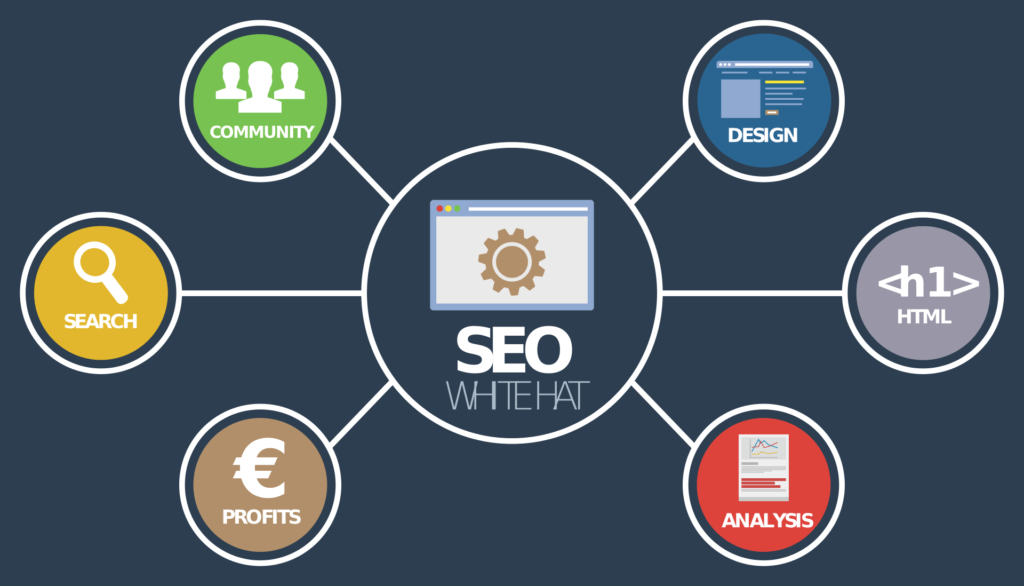Ever wonder why some websites just seem to pop up everywhere online?
There’s a simple reason behind it, and it’s called on-page SEO. While many talk about it, not everyone gets it right. And sometimes, the most helpful tricks are the ones we often miss.
You might be asking, “What’s the big deal with on-page SEO?” Think of it like the foundation of a house. If you get it right, everything else falls into place. And while many focus on the flashy stuff, the real wins are in the basics.
Curious to know more? Stick around, because we’re about to dive into the very first and super important step of on-page SEO.
And here’s a hint: it’s probably not what you think…
5 On-Page SEO Must-Dos to Supercharge Your Website
When it comes to getting your website noticed online, every second counts. There’s a lot to think about, but if you want to see quick results, we need to act fast and smart.
Let’s keep things straightforward and tackle the most crucial steps first. These aren’t just basics; they’re the big moves that can set your site apart from the rest.
- Keywords: Ever wonder how websites know just what you’re looking for? It’s all about picking the right keywords words or terms. If you’re curious about How to Find Keywords for a Website, there are cool tools that can help like:
- Google AdWords (Free): A popular tool that offers keyword suggestions and shows how often they’re searched.
- Ahrefs (Paid): Provides comprehensive keyword research, competitor analysis, and backlink data.
- Moz (Paid): Known for its domain authority metric, it also offers tools to help with keyword research and SEO insights.
- Website Title Tags: With our chosen keywords in hand, crafting the perfect title becomes essential. Wondering why? Because it’s often the first thing people notice. To understand its importance, check out What is a Website Title. It’s crucial to nail this step!
- Content Quality: Why Quality Content Is Important? With our focus words in hand, we can produce content that’s not just good but great. Content that answers questions and keeps visitors coming back.
- Meta Descriptions: Using our selected words, let’s create a compelling summary. A well-phrased description can be the difference between a click to your site or to a competitor’s. Learn more about How To Write Meta Descriptions.
- Images: A site without engaging visuals is a missed opportunity. By labeling them correctly with our chosen words, we’re ensuring search engines and visitors take notice. Learn more about the importance of visuals in our comprehensive guide on image optimization for SEO.
And here’s a little secret…. these strategies I’m sharing? I use them right here on our blog, this exact blog you’re reading right now. And since you’re here with me, it’s proof that they work.
You gotta start with these basics. It’s like giving your website super-speed shoes to race ahead.
24 Additional On-Page Techniques to Boost Your Website's Ranking Power
- Header Tags (H1, H2, H3, etc.): These tags structure your content, guiding readers and helping search engines understand your information’s hierarchy. Read more about How Do You Use Header Tags.
- Mobile Responsiveness: Understanding What is Mobile Responsiveness is more important than ever. With the increasing prevalence of mobile browsing, it’s essential to ensure your web pages are tailored for all devices, particularly mobiles. Learn more about it here.
- Page Speed Optimization: Speed is a ranking factor. To improve page speed, enhance load times with techniques like browser caching, code minification, and using content delivery networks (CDNs).
- Internal Linking: The importance of internal linking cannot be overstated. Linking related pages within your site not only distributes authority but also guides users, significantly enhancing both the user experience and SEO.
- URL Structure: What is the URL structure? A URL structure refers to how a web address is formatted or organized. Clear, concise, and descriptive URLs are user-friendly and favored by search engines.
- Schema Markup: Understanding What is Schema Markup? is crucial. By implementing Schema structured data, you can provide richer search results and potentially boost your website’s visibility.
- Multimedia Elements: Videos, infographics, and the 5 elements of multimedia can engage users and enhance content depth.
- Content-Length and Depth: Comprehensive, in-depth content can position you as an authority and satisfy user intent.
- Canonical Tags: Prevent duplicate content issues by telling search engines which version of a page to index. What is an example of a canonical tag? It’s a special tag added to the HTML of a webpage to indicate the preferred version of that page.
- Robots Meta Tag: Direct crawlers with the Robots Meta Tag on which pages to index or avoid, ensuring only quality content gets indexed. Want to understand more about this? Read our detailed blog post on the Robots Meta Tag.
- Social Sharing Buttons: Boost visibility and engagement by making it easy for visitors to share your content. Read more.
- Outbound Links: Linking to reputable external sources can enhance content credibility and provide additional context. Read more.
- Breadcrumbs: Breadcrumbs SEO Examples are like signposts on a website. They show you where you are and help you find your way. They make using a website easier for people and help search engines, like Google, understand the website better.
- SSL Certificate: A secure website is a trusted website, both by users and search engines. SSL Certificate ensuring your site uses HTTPS is crucial.
- User Engagement Metrics: Paying attention to User Engagement Metrics such as bounce rate and time on page can offer valuable insights into user experience and the relevance of your content.
- Comments and User-Generated Content: Engaging with your audience and encouraging interactions through (UGC) User-Generated Content can boost content freshness and user engagement.
- Multilingual Tags: For websites that cater to different languages and regions, using hreflang tags indicates language and regional targeting, as explored in more detail in the blog post about Multilingual SEO and its significance, titled ‘What Does Multilingual SEO Mean?‘
- Optimized 404 Pages: A user-friendly 404 error page can guide visitors back to relevant content, reducing bounce rates. Read more about What Is 404 Page Optimization?
- Accessibility: Making sure your website is accessible to all users, including those with disabilities, is not only ethical but can also improve your SEO. Learn more about What Is Accessibility In A Website? to understand the importance of web accessibility.
- Content Silos: By understanding What Is A Silo In SEO and ‘How to Build a Local Silo for SEO’, it becomes clear that organizing content to group related information together is essential for enhancing user experience and boosting SEO.
- Anchor Text Optimization: One important part of this is understanding What Is Anchor Text In SEO. Think of anchor text as the words you see in a clickable link.
- Avoiding Cloaking: What is Cloaking in SEO? It’s essential to present the same content to search engine crawlers as you do to users. Cloaking can lead to penalties.
- Optimizing for Featured Snippets: Formatting and structuring content to highlight the benefits of featured snippets in a way that it can be featured at the top of Google search results can drive more traffic.
- Voice Search Optimization: As voice searches become more popular, adapting your content to answer voice queries is essential. What is voice search optimization?
Don't Have Time to Implement On-Page SEO?
We get it… optimizing a website can be time-consuming. Why not let us handle it for you? Hire Local SEO Expert now.
Contact us for a quote, and we’ll save you time, ensuring your website is perfectly optimized for search engines.




